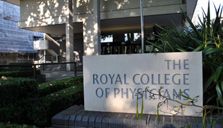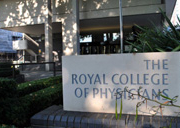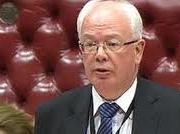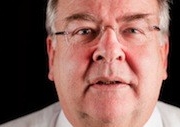RCP surveys its membership’s views on ‘assisted dying’
 The Royal College of Physicians today launched a survey to assess its members’ views on assisted suicide.
The Royal College of Physicians today launched a survey to assess its members’ views on assisted suicide.
The survey consists of four multi-choice questions with the option to write a more detailed response. It closes on 17 November.
The questions are:
1. Do you support a change in the law to permit assisted suicide by the terminally ill with the assistance of doctors? (Yes/No/Yes, but not by doctors)
2. We ask you to consider the following statement (this is a repeat of the question we asked when we last surveyed in 2006 and is included for comparative purposes):
‘(We) believe that with improvements in palliative care, good clinical care can be provided within existing legislation, and that patients can die with dignity. A change in legislation is not needed.’ (Yes/No)
3. What should the College’s position be on ‘assisted dying’ (as defined in the RCP’s consultation document)? (In favour/opposed/neutral or no stance)
4. Regardless of your support or opposition to change, in the event of legislation receiving royal assent, would you personally be prepared to participate actively in ‘assisted dying’? (In favour/opposed/neutral or no stance)
The accompanying consultation document explains that the College last surveyed its membership’s views on this issue in 2006 when the House of Lords was considering Lord Joffe’s Assisted Dying for the Terminally Ill.
At that time 73.2% of UK-based RCP fellows and collegiate members who responded did not believe a change in the law was needed, with 26% believing the law should change. The vote came out just before the Bill’s second reading in the House of Lords and helped to contribute to its defeat by 148 votes to 100.
This policy was later reaffirmed by the RCP’s Council in 2012.
This new survey has been prompted by Lord Falconer’s Assisted Dying Bill which seeks to legalise assisted suicide for mentally competent adults with less than six months to live. It has its committee stage (when amendments to the bill are considered and debated) on 7 November.
I have previously argued that the Falconer Bill is a recipe for the abuse of elderly and disabled people. Furthermore, public support for it falls from 73% to just 43% when the major arguments against it are heard.
There are also strong signals coming from the US state of Oregon, where very similar legislation was passed in 1997, that this is not the route to follow. The experience of other jurisdictions, like the Netherlands and Belgium, casts a dark shadow.
As the RCP consultation document notes, the BMA, the Royal College of Surgeons of England, the Royal College of General Practitioners and the Association for Palliative Medicine are also opposed to a change in the law on assisted dying.
Assisted suicide is unnecessary, dangerous and uncontrollable. The strong arguments against legalising assisted suicide, or any other form of euthanasia, need to be heard.
We can be sure that the vocal minority of doctors who support such legislation will do their best to skew this vote. This is why it is imperative that the majority speaks clearly.
If you have received an email from the RCP about this vote, please don’t ignore it. It takes only minutes to answer the four multi-choice questions above, and not much more to write something sensible in the comment box.
It is the very least we can do to protect our patients and keep the law safe.











Leave a Reply
Want to join the discussion?Feel free to contribute!